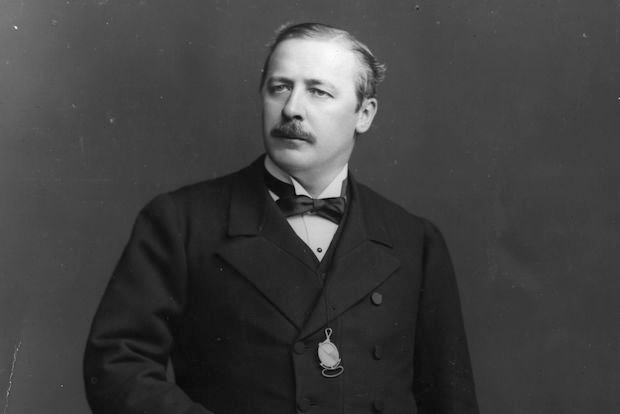From ‘Germania contra mundum’, by Lord Cromer, The Spectator, 24 July 1915:
What, therefore, are we and our Allies fighting for? Without attempting to deal fully with the considerations which may be adduced in connexion with each separate branch of this subject, it may perhaps be as well to make a catalogue— and possibly an incomplete catalogue—of the objects which we seek to attain.
In the first place, we are fighting for the maintenance of the British Empire and for our own existence as a nation. It may be hoped that the truth of this statement is now very generally recognized by the people of this country. There appears every reason to hold that it is now fully recognized by the people of that “Greater Britain” which lies overseas. Canada, Australia, New Zealand, and South Africa feel no doubt on the subject. Nevertheless, some politicians, mostly of an obscure typo, have at times endeavoured to persuade the British working men that they have no real interest in this war, and that the triumph of the German arms would not adversely affect their fortunes or materially change the course of their lives. There cannot be a greater error. It is no exaggeration to say that a complete German victory would exercise a profound effect on the political status, the material wealth, the social condition, and the surrounding moral atmosphere of every individual subject of King George V. A partial victory would produce changes in proportion to its extent. Let it not be supposed for one moment that any degree of statesmanlike generosity would be extended to the vanquished. Englishmen have been slow to recognize the extent to which the old Germany, with its really noble aspira- tions and high standard of morals, has passed away. Its place has been taken by a Germany one of whose principal national characteristics is extreme vindictiveness and a catholic capacity for hating other nations. According to the testimony of all competent observers, the hatred for England which existed before the war exceeded anything which we could have believed possible. It has, of course, now been increased tenfold. The German Heine said: ” The Germans are altogether more vindictive than the Latin races. They are idealists in hating.” He added that the Germans hate not only what their enemies do but what they think. The fact is not surprising in so far as the English are concerned, far the whole of English thought, whether interpreted by philosophers, politicians, or journalists, has for a long time past run on lines diametrically opposed to German processes of ratiocination. The former has been invariably tinged with altruism. The latter has been the ne plus ultra of egoism.
The list of objects which we seek to attain is long. It embraces almost every subject of importance which for generations past has engaged the attention not only of British statesmen but of the civilized world. It appeals alike to self-interest, to honour, and to political imagination. Neither is it complete, for, in truth, all the episodes enumerated above are but different phases of one huge struggle between rival methods of government and conflicting theories of the lines on which the progress of the world should for the future advance.
It has been often stated that the struggle is one between democracy and autocracy. The definition is true, but it does not cover the whole ground. It would be more correct to say, in the words of Mr. Oliver in his Ordeal by Battle, that issue bar been joined between “the modern spirit of Germany and the unchanging spirit of civilization.” It will be well to inquire briefly both into the changes which the new German spirit has introduced into the relations between States, and into the effect which has been produced on the internal conditions of Germany itself. CROMER, (To be continued.)






Comments